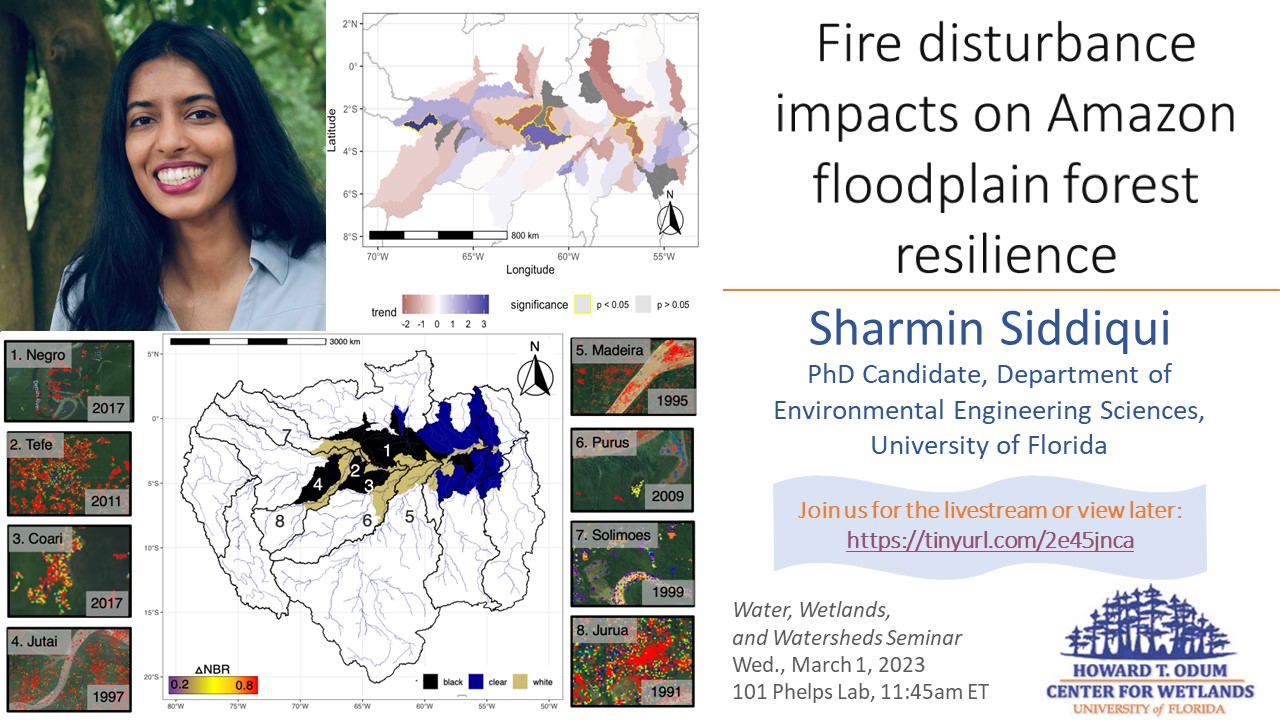
Sharmin Siddiqui, PhD Candidate, Environmental Engineering Sciences Department, University of Florida
Join us for the livestream February 22nd, 11:45am ET: https://t.co/aC6PSixTDC
(Please visit our YouTube channel main page for the stream if there are any issues with the direct link.)
ABSTRACT
Amazon floodplain ecosystems are attuned to forest-climate interactions, which have governed species composition, ecological life cycles, and the timing and distribution of carbon, water, and energy cycling for millennia. The intensifying intrusion of wildfire into this flood-adapted ecosystem raises questions about future floodplain forest resilience under multiple stressors. While a handful of field-scale studies have assessed floodplain forest changes following fire and flooding in nutrient-poor igapo ecosystems, less is known about these effects in nutrient-rich várzea wetlands, which we hypothesize have lower rates of recovery. To test this hypothesis, we used Landsat 7 Enhanced Vegetation Index (EVI) from 1984 to 2021 to analyze how fire and flood disturbances affected vegetation health in both igapo and várzea floodplains. Changes in EVI are associated with increasing fires, especially in floodplain forests (p < 0.01). Preliminary results suggest whitewater floodplain forests have the greatest sensitivity to wildfire (p < 0.01), whereas blackwater floodplain forests have slower rates recovery. Through remote sensing indices of fire severity and forest response, we confirm floodplain forest sensitivity to fire and find that understudied whitewater floodplain ecosystems may be even more sensitive to wildfire disturbance. Additional field-scale studies remain critical for understanding how remotely sensed EVI translates to post-disturbance vegetation composition and long-term forest resilience in Central Amazon floodplains.
BIO
Sharmin Siddiqui is a PhD Candidate and NSF Graduate Research Fellow working in the Environmental Engineering Sciences Department at the University of Florida. Her dissertation research focuses on the classification of undisturbed rivers of the Amazon as well as the impacts of climate change and wildfire on Amazon freshwater forests and rivers.
POSTCARD
